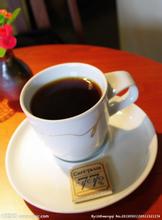Panamanian Coffee Manor introduces Rosa Coffee Emerald Manor Pocket Flower Butterfly Coffee beans
The history of Esmeralda Farm:
Haines, a Swede, in 1924. Elliott founded Esmeralda Farm, which was not a coffee grower but a ranch. Forty years later, Daniel Lou in 1964. Mr. Bidarson's grandfather, Luther Ruffer. Mr. Bidarson bought Esmeralda Farm in order to have an old home after retirement, grandfather Luthor. Mr. Bidasson was born in Sweden and was president of the Bank of America and director of United Nations Development.
His son, Mr. Bradesson, moved to Panama from California in 1973 and inherited his father's farm. He changed most of the farm to grow coffee in 1987 and invested in the machinery and equipment of refined coffee to start the brand in 1994. Brais. While Mr. Bidarson and his wife Susan started a formal business on the coffee farm, they also raised three children, Elligo (born in Philadelphia in 1966), Rachel (born in Sweden in 1967) and Danielu (born in Panama in 1974).
In 1996, Blaise and Rachel visited a farm for sale in the Haramijun area of the Bocketi Valley, and was attracted by the beautiful farm and immediately bought it. This is Esmeralda. Daniel Lou, the third son of Haramiqiong Farm. It is in this farm that Mr. Bidasson has grown what has attracted the attention of the coffee world-- Geisha Coffee Rose Summer:
The species of Geisha was discovered in the Rose Summer Forest of Ethiopia in 1931 and sent to the Coffee Institute in Kenya; it was introduced to Uganda and Tanzania in 1936, in Costa Rica in 1953, and Panama was introduced in the 1970s by Francesca of Dongba Seven Farm Garden. Mr. Serraxin got seeds from CATIE, Costa Rica, and started growing Rosa Coffee.
Geisha, sweeping the coffee industry with the power of a hurricane, the coffee revolution is so fierce that the blue mountains of Jamaica and Kona of Hawaii, which have occupied the coffee kingdom for a long time, have to avoid. This wild species, which originated in Ethiopia, is now widely used in major coffee producing areas after numerous battles, and its best spokesman is the "La Esmeralda" manor from Panama.
[producing area]: located on the hillside of Mount Baru, the highest peak in western Panama
[manor]: Esmeralda (Jade Manor) / Hacienda La Esmeralda
[grade]: SHB
[growth altitude]: 1450m
[treatment]: fine washing treatment
[special certification]: green rainforest certification
[manor website]: http://haciendaesmeralda.com/
[baking degree]: shallow baking city-
[packing]: professional Kraft paper coffee bag contains imported one-way valve
[baking date]: bake after placing an order
[flavor description]: oolong tea, peach, honey, fresh and comfortable, bright and balanced, the aroma is extremely layered, the whole aroma and caramel sweetness are wrapped together, the tip of the tongue feels sour obviously, just mild and round in the mouth, the fruit is sweet and sweet, like swallowing a mouthful of fresh fruit tea, sweet and fragrant. The lower the temperature, the finer the acidity. Charm is also quite long-lasting, let people feel good satisfaction!
[Yidou comment]: the aroma emitted during grinding is refreshing, strong and full-bodied fruit flavor, the entrance is sweet, mellow, silky, soft fruit acid, unique sweet taste, unforgettable for a long time. It can only be described with the word "amazing"!
It is recommended to use hand flushing, legal pressure and other drip filtration extraction, which can better show the magnificent charm and flavor of Rose Summer!

Important Notice :
前街咖啡 FrontStreet Coffee has moved to new addredd:
FrontStreet Coffee Address: 315,Donghua East Road,GuangZhou
Tel:020 38364473
- Prev

Excellent texture Salvadoran coffee flavor Taste Manor Introduction Mercedes Manor
El Salvador is one of the small countries in Central America, where coffee is light, aromatic, pure, slightly acidic, and the flavor characteristics are excellent balance, which is a specialty of Central America. It has sour, bitter and sweet taste characteristics, and the best baking degree is moderate and deep. El Salvador Coffee-Coffee Origins In the early 1990s, guerrilla warfare greatly damaged the country's national economy, causing coffee to grow.
- Next

Ecuadorian coffee producing countries, which mainly produce robusta coffee, introduce fine coffee beans.
Ghana Pagos coffee is produced at an average altitude of 300 meters above sea level. It has different tastes, it is not so sour and bitter, it tastes very good, it is mild, it tastes slightly sweet and floral, and it is very easy to taste. It is a very good choice for guests who are just starting to drink coffee. For drip-filtered coffee that wants to make and taste pure aroma and taste, I recommend you try Ghana
Related
- Does Rose Summer choose Blue, Green or Red? Detailed explanation of Rose Summer Coffee plots and Classification in Panamanian Jade Manor
- What is the difference between the origin, producing area, processing plant, cooperative and manor of coffee beans?
- How fine does the espresso powder fit? how to grind the espresso?
- Sca coffee roasting degree color card coffee roasting degree 8 roasting color values what do you mean?
- The practice of lattes: how to make lattes at home
- Introduction to Indonesian Fine Coffee beans-- Java Coffee producing area of Indonesian Arabica Coffee
- How much will the flavor of light and medium roasted rose summer be expressed? What baking level is rose summer suitable for?
- Introduction to the characteristics of washing, sun-drying or wet-planing coffee commonly used in Mantenin, Indonesia
- Price characteristics of Arabica Coffee Bean Starbucks introduction to Manning Coffee Bean Taste producing area Variety Manor
- What is the authentic Yega flavor? What are the flavor characteristics of the really excellent Yejasuffi coffee beans?

